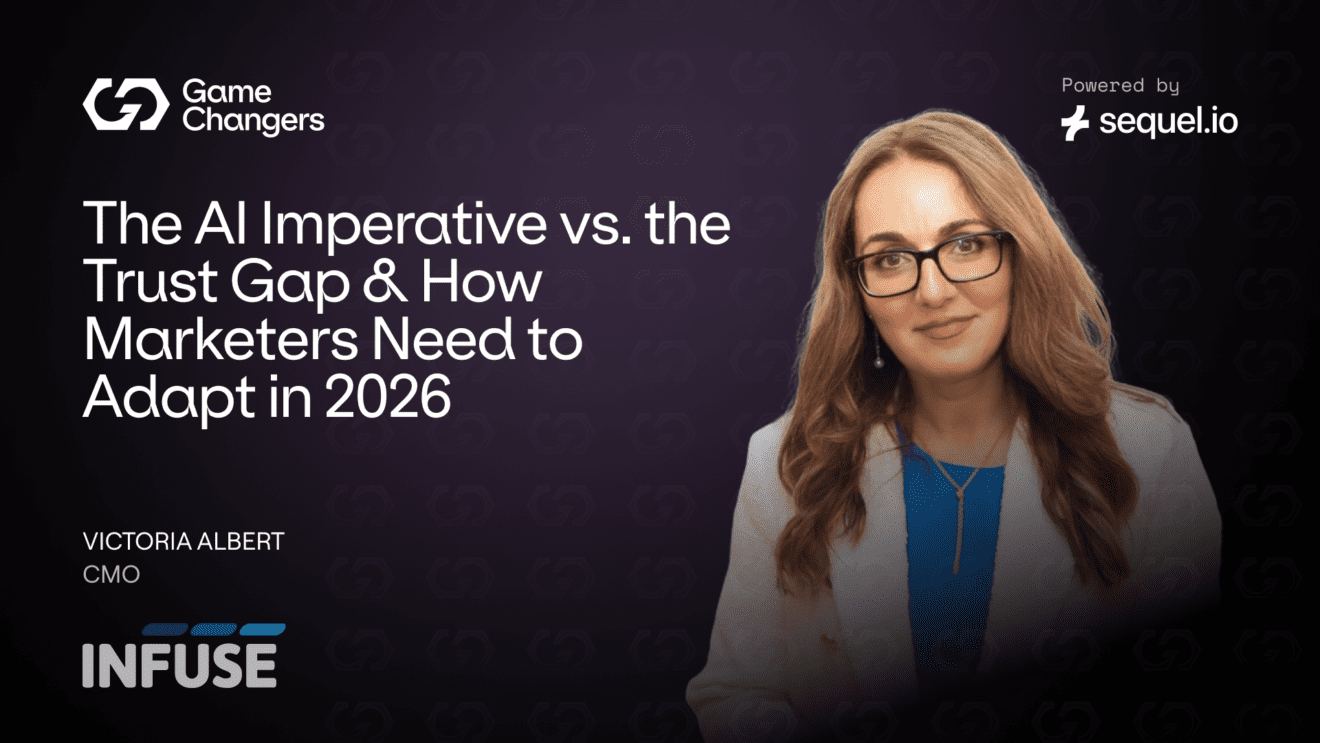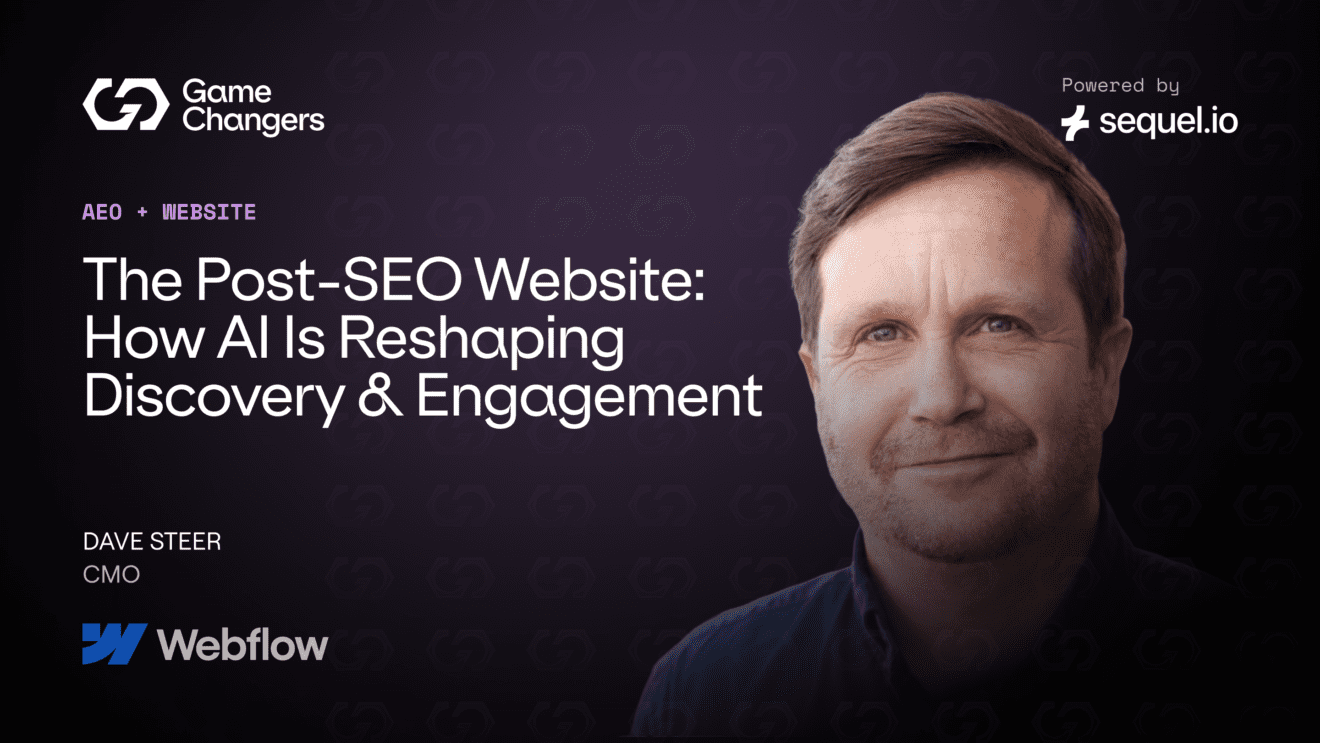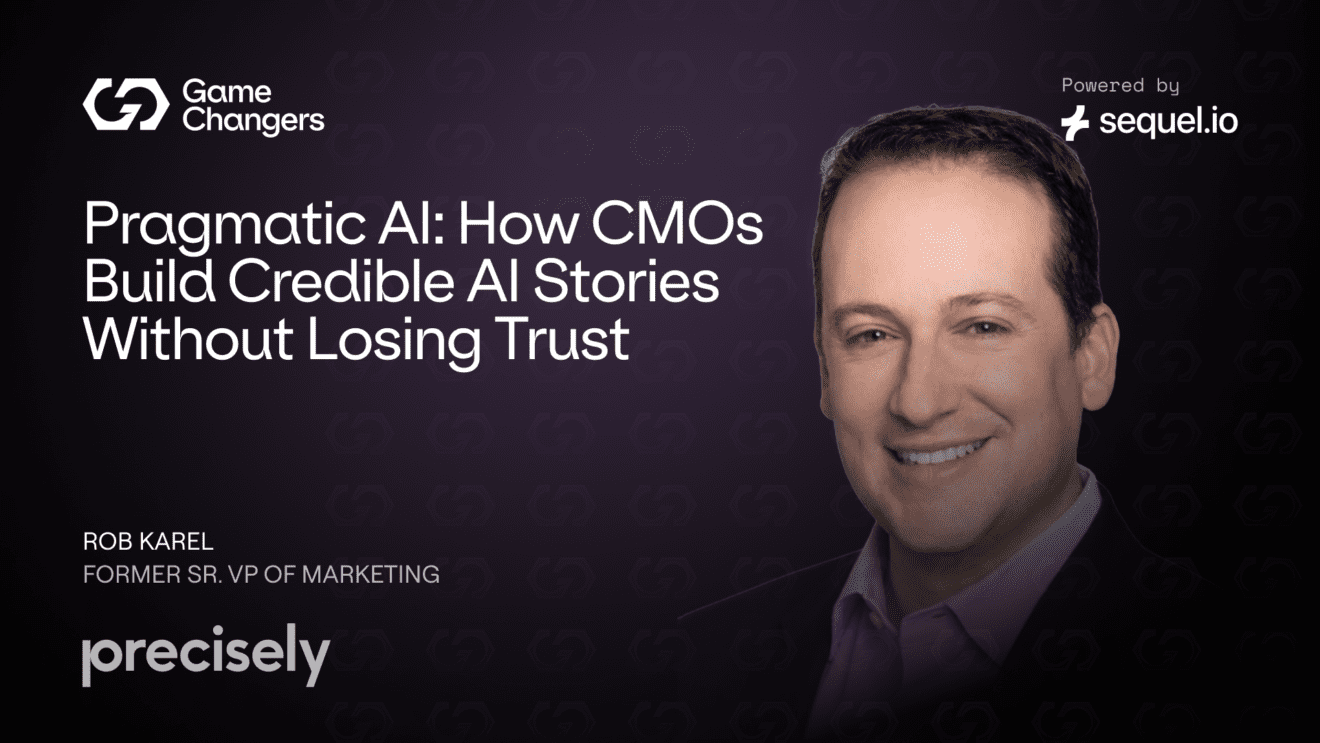AI & GTM strategies that will accelerate your impact in 2024
Embark on a transformative journey with Lara Shackelford as she shares her personal trajectory to success. Learn cutting-edge AI and GTM strategies designed to supercharge your impact in 2024, empowering you to elevate your professional path and drive significant results in the dynamic realms of AI and marketing leadership.

In a recent episode of the Game Changers, Lara Shackelford shared about her career arc that led her to key roles in powerhouses such as Levi’s, Oracle, and Intel.
The interview offered a fascinating look into Lara’s unexpected transition from aspiring fashion designer to marketing guru, before she took the leap into entrepreneurship with a company focused on exploiting AI’s potential for, what she believes is, the ultimate customer experience.
One of Lara’s key messages during the conversation centered around the importance of marketers not just understanding but mastering the fundamentals of AI. According to Lara, the savvy application of AI principles can greatly enhance a business strategy by enabling accurate research and analysis of Total Addressable Market (TAM). It also provides incredible insights by examining raw business data.
But Lara didn’t stop there. She drove home the power of a customer data platform, emphasizing its crucial role in capturing a total customer view in today’s rapidly evolving business climate.
Another noteworthy point made in the discussion was the importance of a data-centric strategy before leaping into AI implementation. A strong data strategy is foundational to the successful execution of an AI strategy. Interestingly, the introduction of AI does not radically change the outcomes or goals of a marketing team, but rather enhances and expands the team’s understanding around AI and its specific uses.
Artificial Intelligence is not yet a universally adopted practice. While formally implemented in pilots, many companies still treat AI as a side project. A potential game-changer, however, may be the new GPT-store that could facilitate a wider organizational use of AI.
Meanwhile, amidst advancements, it is essential to remain guarded and validate the sources when using AI tools. Trust, after all, is crucial when dealing with sophisticated tech.
Lara imagines a future where AI catalyzes a shift from the traditional employer-employee system to project-based engagements. With AI, it becomes feasible for businesses to commodify their proprietary GPTs, lowering the barriers to market entry.
Embarking on the AI journey begins by identifying specific use cases and collaborating with legal teams to establish a clear understanding of what can be achieved with AI. But even as machines join the workforce, Lara stresses the need to maintain authenticity and stay true to the human voice. AI tools may offer ideas, yet the final content needs to encapsulate the brand’s voice and authenticity.
Concluding the enlightening conversation, the speakers pointed out some useful AI tools for marketers, including Writer, Jasper, and Perplexity. Armed with such tools and insights, the realm of AI-based marketing holds immense potential for innovative leaders ready to leverage them.





